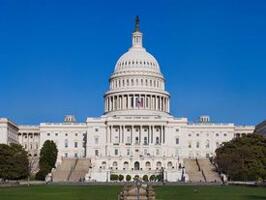January 25, 2013
So much for the "Grand Bargain" -- or at least for the not-so-grand gutting of Social Security and Medicare that the "very serious" thought-leaders of Washington political and media circles have always found so appealing. Whatever President Obama may have contemplated up until now, his second inaugural address, delivered yesterday on the steps of the Capitol, bluntly repudiated Republican arguments against the social safety net -- and forcefully identified those popular programs with the most sacred American values.
"We, the people, still believe that every citizen deserves a basic measure of security and dignity," said Obama -- not only because it is the responsibility we have to each other as human beings, but because security and dignity, for every man, woman, and child, are the existential foundations of freedom.


